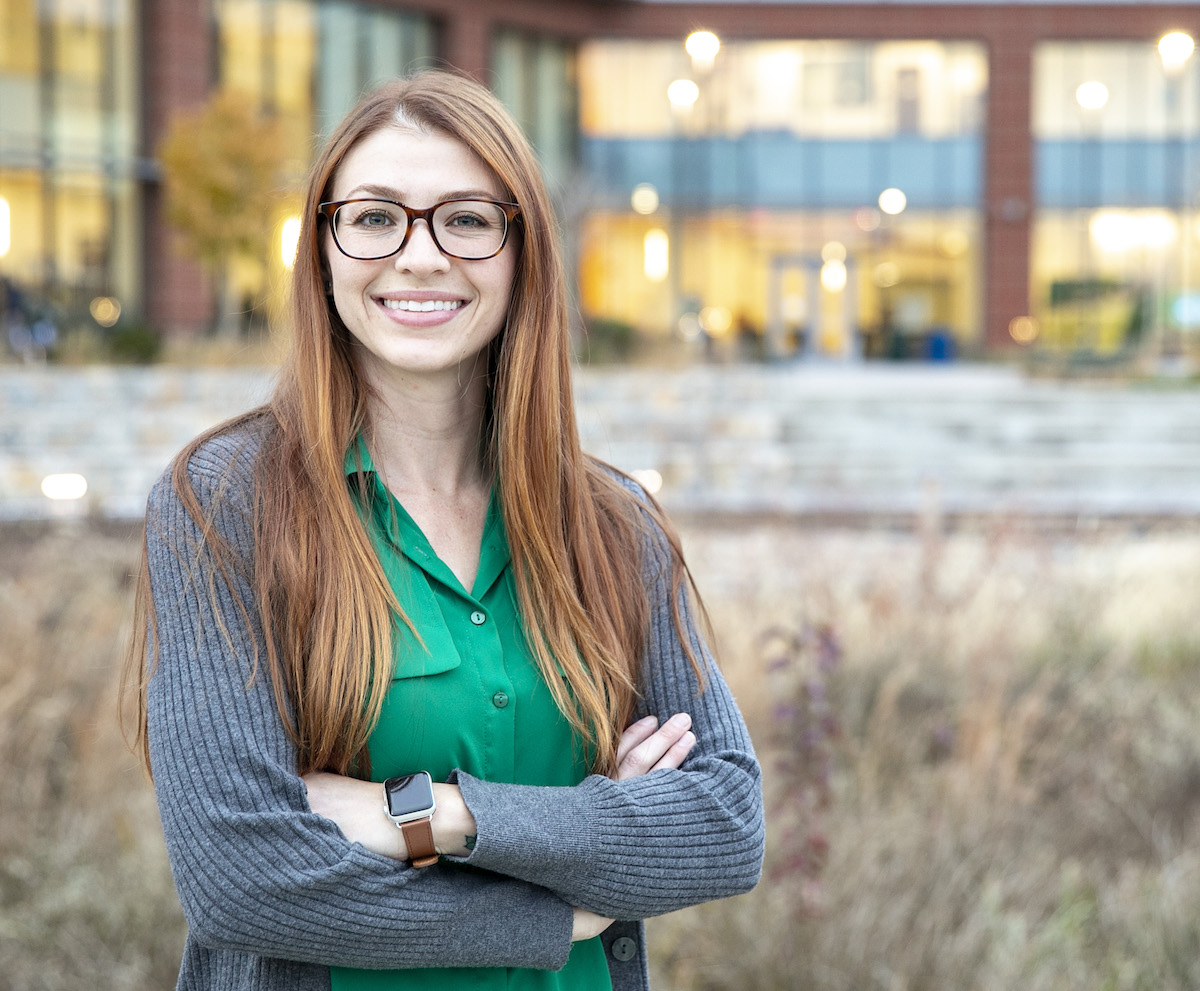
Jessica Lammers said her experience at George Mason University was better than she ever expected.
The professors were knowledgeable and supportive, the classes applicable to her job ambitions, and the classmates in the two in-person classes she had while pursuing her master’s degree in public health became fast friends.
She even found a job as an environmental health specialist with Fairfax County through her internship.
But what she really appreciated was the flexibility provided by her virtual classes because—wait for it—she was able to spend more time with her border collie rescue, Atlas.
“My dog is very happy,” said Lammers, who graduates this month with a concentration in epidemiology. “We do a lot of walks and a lot of workouts throughout the day. He’s high maintenance, but well cared for.”
Well cared for is also how Lammers describes herself in relation to Mason, especially when it comes to the faculty and her advisors.
“There were some professors who went above and beyond to make sure you knew they were in your corner,” Lammers said. “They want you to succeed, not just in school, but in life.”
“Jessica is a very engaged student who is not afraid to ask questions,” said Jenna Krall, an assistant professor of public health in Mason’s Department of Global and Community Health. “Through this, she paves the way for other students to ask questions and helps to create an interactive and collegial learning environment.”
Lammers, a Phoenix, Arizona, native, admitted she knew nothing about Mason while an undergraduate at Humboldt State University in Arcata, California, where she majored in environmental science.
But when she came to Alexandria, Virginia, to help her parents relocate, she found a job as an environmental analyst. When Lammers decided to pursue her master’s degree to accelerate her career arc, Mason’s highly regarded public health program got her attention.
“It will give me a better understanding of how disease works and spreads,” Lammers said of the program. “How best to go about inspections and understand why certain procedures are necessary. There are also epidemiology positions in the county that are open that my current supervisor is pushing me for. So I’m hoping there’s a transition there in the future.”
Though the pandemic caused most of her classes to be virtual, that turned into a plus, as well. Not only because Atlas received more attention, but because Lammers could do her coursework around her work schedule.
Lammers was also part of a multidisciplinary project that ended with a presentation at the National Academy of Medicine’s 2021 DC Public Health Case Challenge. The challenge was to produce a plan to tackle a particular health problem through a public health approach.
Lammers said she enjoyed working with students from other disciplines, including PhD candidates and undergraduates, but the act of presenting was its own reward.
“It was exciting,” she said. “I didn’t realize I’d enjoy it so much until I was up there.”
It’s kind of how she feels about her Mason experience.
“There’s an atmosphere here,” Lammers said. “Everyone is in it together, which is nice.”
